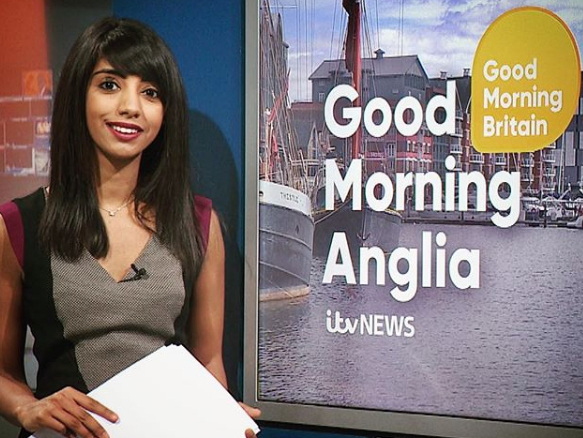
National newspapers have begun investing to make their newsrooms more diverse after realising the need to represent the communities they want to reach, a social enterprise boss has said.
Josie Dobrin, chief executive of Creative Access, said there are “tons of BAME [black, Asian and minority ethnic] young people waiting in the wings” of the journalism industry.
Creative Access places around 30 to 40 young BAME journalists a year, working with the BBC, ITN, City AM, the Daily Mail, the Financial Times, the New Statesman, the Sun, the Telegraph, the Times and magazine publisher Hearst.
Dobrin told Press Gazette: “There are actually two reasons for doing this. There’s the moral reason, which is that you can’t just have old boys’ networks recruiting through word of mouth, and you’ve got to give everybody access.
“But actually there are lots of commercial reasons which is that if you want your business to thrive you need to be able to represent the communities who you’re trying to reach.”
Dobrin pointed to the 2011 riots after the shooting of Mark Duggan by police in London, and the deadly Grenfell Tower fire last year as examples of stories where this proved important.
She added: “One girl who we placed at the Daily Mail was the first person to uncover a Jihadi bride story because she was able to go into the community as a young Muslim girl and really talk to the young people there in a way that a white reporter from a different background might not have been able to do.
“We’ve got another girl who wears a hijab, speaks fluent Punjabi, lives in Bradford, mum of three, who’s not a typical BBC reporter but is doing amazingly reporting for the BBC Look North because she completely represents the people that she’s trying to reach.
“It’s really exciting for us in journalism because you see really tangible results and I think all credit to the broadsheets that we’re working with because they are picking up on that now, even if they are slightly later to the party than some of the other industries that we’ve been working with.”
Former Creative Access interns include Raveena Ghattaura (pictured) who is now a journalist with ITV News.
Creative Access began as a charity with two years of Government funding, then relaunched as a social enterprise at the end of 2016 when the backing ended.
Now, it relies on companies believing enough in the cause to pay for the service.
Dobrin said: “When we first set up, we didn’t know if it would be a viable business and whether companies would be prepared to pay for it.
“But actually this issue of diversity is much higher up the agenda now and it turns out that actually companies do have budget for it and they do recognise that they have to invest in it.”
This year the Telegraph advertised for six summer internships through Creative Access this year, receiving hundreds of applications, and it will also run eight nine-month internships.
The Times and the FT both place a smaller number of people but at regular intervals, and Dobrin said each newspaper had created extra roles after seeing the high quality of the candidates.
The NCTJ’s Diversity in Journalism report, released in November, revealed that five per cent of journalists working in the UK are from ethnic groups, compared to nine per cent of all jobs in the economy.
In a BBC report published last month, the corporation revealed that its BAME workforce has increased from 13.1 per cent in 2015 to 14.8 per cent in 2018 – its highest ever.
But the report said: “Although recruitment rates for BAME recruits is high, so are attrition rates.”
Dobrin said: “This issue of diversity is really bad at entry level but it’s really, really bad at senior level and I think for us it’s about trying to make sure that there’s succession planning because those guys are not going anywhere, certainly for the time being.
“No one’s going to leave the table but you’ve got to just make sure there are a few more seats around it.”
She added: “It’s all very well placing people at entry level but without a shadow of a doubt the young people that we’ve placed, there are three things happening to them as they progress their careers.
“One is they’re not getting access to as much training, two is they’re not getting paid as much as their white counterparts, and third is they’re not getting promoted as much.”
To lower drop-out rates and help more BAME journalists into senior roles, Creative Access is launching a development scheme for its alumni and is calling for mentors to get involved.
The organisation also gives all its interns access to pastoral support and masterclasses to accompany their placement.
Positive discrimination has been called unfair by critics and Sir Trevor McDonald has said he is a “great believer in meritocracy”.
But Dobrin said: “There are so many barriers to entry for the young people that we’re working with, whether it’s not being able to do unpaid internships, whether it’s parental pressure to go into a more professional industry, whether it’s lack of senior roles, there’s lots.
“So for me affirmative action or positive discrimination is really important just to level the playing field a bit to give people that opportunity to prove themselves.”
Picture: Creative Access.
Email pged@pressgazette.co.uk to point out mistakes, provide story tips or send in a letter for publication on our "Letters Page" blog






